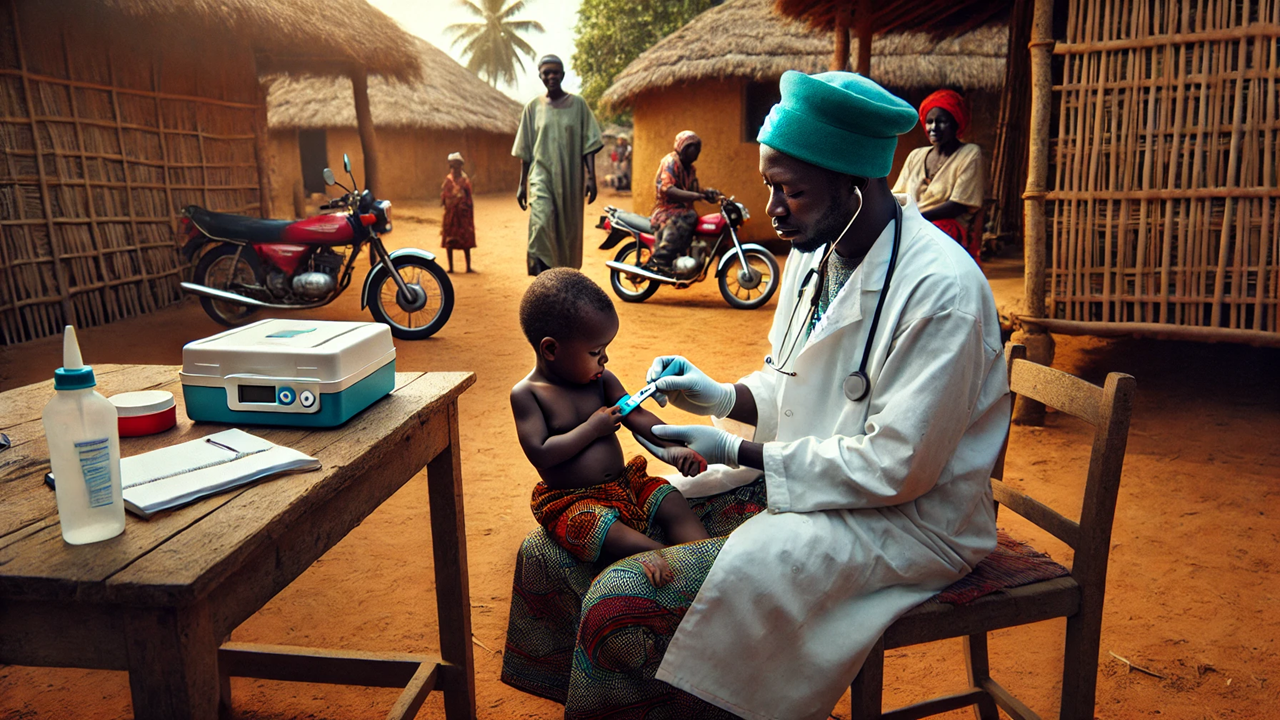African Health Ministers Call for Urgent Action as Malaria Progress Stalls
The Global Technical Strategy for Malaria 2016–2030, adopted by WHO in 2015, calls for reducing malaria incidence and mortality by at least 90% by 2030.

- Country:
- Zambia
Progress in the fight against malaria in the African region has slowed significantly, with cases falling by just 5% since 2015 and mortality declining by 16%, far below the 75% reduction target set for 2025. The warning was sounded at the Seventy-fifth session of the World Health Organization (WHO) Regional Committee for Africa, where health ministers gathered from 25–27 August in Lusaka to strategize urgent measures.
The Global Technical Strategy for Malaria 2016–2030, adopted by WHO in 2015, calls for reducing malaria incidence and mortality by at least 90% by 2030. Without intensified interventions, the continent risks missing these targets, undermining two decades of hard-won progress.
Barriers Slowing Malaria Control
Ministers acknowledged a host of challenges undermining progress:
-
Weak health systems with poor access to quality services.
-
Conflicts and natural disasters disrupting healthcare delivery.
-
Inadequate domestic financing as many governments fail to meet pledges due to economic pressures.
-
Climate change, which is expanding mosquito breeding zones.
-
Resistance to insecticides, diagnostics, and antimalarial drugs, limiting the effectiveness of interventions.
-
Fragmented coordination between governments, donors, and stakeholders.
Globally, just US$ 4 billion was invested in malaria control in 2023 — less than half the US$ 8.3 billion needed. Of this, 63% came from international donors, leaving the response highly vulnerable to funding cuts and global budget reallocations.
Ministers Commit to Urgent Actions
Despite these setbacks, African health ministers reaffirmed their determination to accelerate malaria control and elimination. Key commitments include:
-
Strengthening institutional capacity to build resilient health systems.
-
Training and retaining health workers, including community-level staff.
-
Expanding pooled procurement systems and local manufacturing for malaria commodities.
-
Using data analytics to target interventions more effectively.
-
Scaling up malaria vaccines, insecticide-treated nets, and chemoprevention.
-
Mobilizing domestic funding to reduce dependency on donors.
-
Improving coordination and accountability among governments and partners.
Dr. Mohamed Janabi, WHO Regional Director for Africa, stressed the urgency:
“Progress has been made, but it is not nearly enough. Cases and deaths are not falling fast enough. We must do more, and we must do it faster. Ending malaria is not only about saving lives. It is about unlocking human potential, driving economic growth and securing Africa’s stability and future.”
Notable Gains Amidst Challenges
Despite the slowdown, the region has seen notable achievements over the past two decades:
-
Malaria control efforts averted 2.2 billion cases and 12.7 million deaths globally.
-
Insecticide-treated net use rose from 46% in 2021 to 59% in 2023.
-
Children receiving seasonal malaria chemoprevention surged from 200,000 in 2012 to 53 million in 2023 across 18 countries.
-
By July 2025, nearly 6 million children in 20 countries had received malaria vaccines.
Countries Leading the Way
Some countries are showing encouraging progress:
-
Algeria (2019) and Cabo Verde (2024) were certified malaria-free.
-
Rwanda is on track to meet its 2025 incidence reduction target.
-
Sao Tome and Principe is on track for its mortality reduction target.
These successes highlight how tailored, data-driven strategies can yield significant results, even in resource-constrained settings.
Financing and the Road Ahead
Ministers emphasized that malaria programmes must adopt a new financing model, shifting towards sustainable domestic investment rather than depending largely on international aid. Resources must be directed to frontline communities, where the impact of malaria is most severe.
With renewed commitment, robust political will, and innovative approaches, experts believe it remains possible to consign malaria to history. However, without urgent action, millions remain at risk, and Africa could fall short of the 2030 malaria elimination goals.










